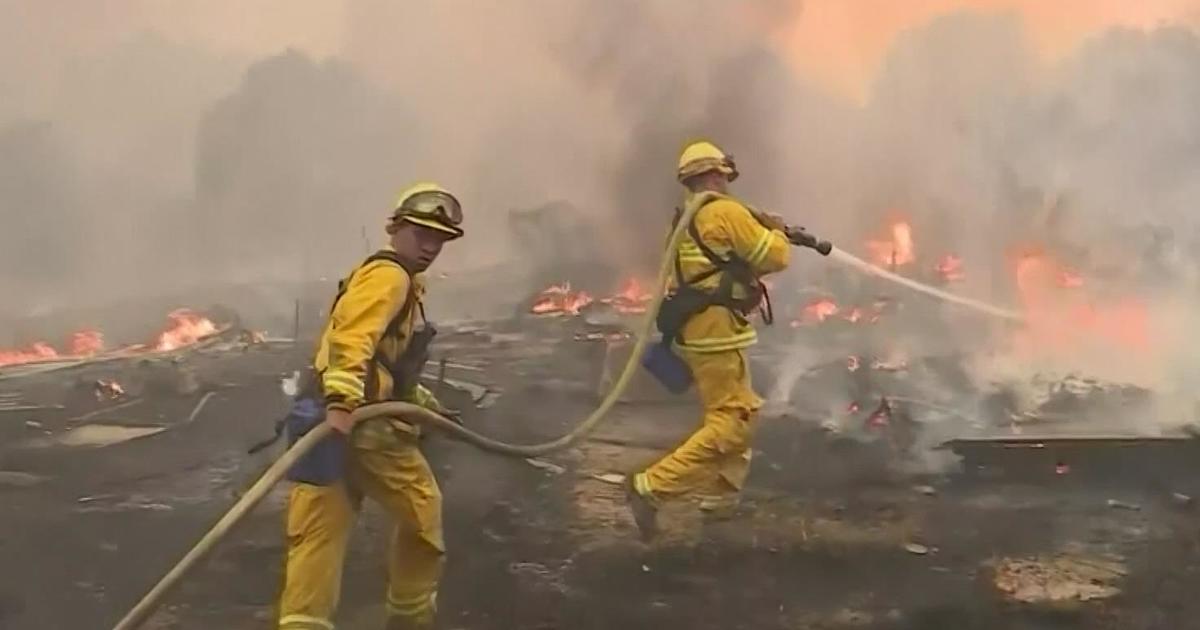Oregon Officials Say Herbicide Likely Sprayed On Homes From Helicopter
GRANTS PASS, Ore. (AP) - A state investigation has determined that a helicopter hired to spray herbicide on some commercial timberlands in southwestern Oregon "more than likely" allowed some to fall over people's homes as it flew by.
But the results released Tuesday by the Oregon Department of Agriculture came to no conclusions about whether the small amounts found on the ground can account for complaints from two dozen people who said the spray made them sick.
The investigation was launched after complaints last October from people in the Cedar Valley area north of Gold Beach.
Department Director Katy Coba said that the helicopter company, Pacific Air Research Inc., of White City, could face state and federal civil penalties as the investigation moves into the enforcement phase.
The state found violations including:
- Allowing pesticides to fall on properties other than the intended spray site.
- Applying a heavier dose than allowed by label instructions on one of the commercial timberland sites.
- Providing multiple false records that misled the department about what products were used.
Pacific Air Research owner and pilot Steve Owen said the department had not given him any paperwork about the investigation or its findings, so he could not comment.
Cedar Valley resident John Burns, assistant chief of the local volunteer fire department, said he was frustrated by the time the investigation took, particularly to come up with the various pesticides that fell on their homes. That made it impossible for doctors treating victims to know what they were dealing with. He added that he is still coughing five months after the incident.
"We had to dig every bit of information out of them to know what was going on, why this happened to us, and what the product was we were poisoned with," said Burns. "What are they going to do to stop this from happening to us again?"
Coba acknowledged that the department could have done a better job of keeping residents informed, but added that the applicator, Pacific Air Research, did not cooperate, to the point of providing false records that misled investigators about what products were used.
Though investigators were initially told that the only herbicide used was glyphosate, commonly sold as RoundUp, samples of vegetation from the properties of two of the Cedar Valley residents showed barely detectible levels of 2,4-D and triclopyr, both common broadleaf weed killers, investigators found. Five other vegetation samples detected no herbicides.
Lead investigator Mike Odenthal said Air Research set up Oct. 16 west of the rural neighborhood to spray three forest units.
The helicopter flew over the homes when it went to spray a fourth forest plot, but records indicating that pass didn't emerge right away, Odenthal said.
The flight records, combined with details indicating what the helicopter carried, the chemicals detected on the ground and a lack of other potential sources of herbicides, led to the conclusion that the chemicals probably came from the helicopter.
"I think we've got enough to show more than likely that the product came from the aerial applicator," he said.
Lisa Arkin, director of the pesticides watchdog group Beyond Toxics, said she was disappointed that investigators did not pay greater heed to the two dozen residents who complained of headaches, blurry vision, loss of balance, coughing, fatigue, nausea and rashes.
"It is no coincidence that so many people were sickened on the same day, and most of them had no idea there was even a helicopter spraying, yet they reported similar symptoms," she said. "I think that's a clear indication the exposure to the spray that day was linked to the illnesses."
She added that seven vegetation samples were not enough, and none was taken from an area where the dose was apparently heavy enough to kill the grass.
Meanwhile, a group of doctors has written Oregon Health Authority officials asking for an epidemiological investigation of health complaints from the spraying.
The agency has yet to respond to the request, and has advised doctors treating patients suspected of herbicide exposure to consult the Oregon Poison Center.
Copyright 2014 The Associated Press.



